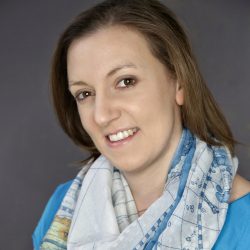In the two and a half years since I first wrote about gender dysphoria, I’ve received more comments on that article than any other. That’s surely because so few writers are willing to write about it from anything other than a wholly affirming (or wholly dismissive) angle. I understand why, having angered some for writing it.
This dynamic, unfortunately, means that those who are doing most of the talking about gender come from the fringe of the conversation. That’s tragic, because this is a subject that demands a range of perspectives, not to mention nuance and humility. The current climate, as I argue elsewhere in this issue, does a disservice to the individual people out there—a crowd of uncommon people, each with his or her own struggles—who hear something like their pain finally reflected back at them in discussions of gender. It’s also clear, however, that some of them would ultimately benefit more if they used other lenses to make sense of their suffering.
That’s why I was thrilled to learn of a new organization that’s working to improve the conversation and to offer some of those alternative lenses.
Introducing Genspect, a Moderate Organization
Genspect is a new organization, founded as “a voice for parents with gender-questioning kids.” Since they launched in late June, Genspect’s team has hit the ground running with their outreach to media organizations (including Third Factor) in an effort to express that voice.
“It’s not a support group, it’s not campaigning against transgenderism, and it’s not a research society,” said Angus Fox, a member of Genspect’s press team, who spoke to me in June. “It’s an alliance for parents and professionals who are concerned about medicalizing people who are going through a formative period, where everything’s in flux. They’re seeing gender as all important, but there are so many things going on in their lives, and it all goes under the heading ‘gender.’ And there are a lot of parents and professionals who are very worried about this.”
The current media climate, moreover, gives people a warped view of professional and public sentiment. “You would think from the way this is presented, there’s fifty percent of society that’s like, ‘Yay trans, let’s medicalize,’ and fifty percent who say that trans people are deviant perverts who should be shunned,” Angus said. “But the truth is there’s eighty-five percent of society that’s in the middle saying, ‘Wow, this is complicated. There’s a lot to talk about here.’ But everything’s become so binary and so polarized because Internet discourse ramps everything up.”
The truth is there’s eighty-five percent of society that’s in the middle saying, “Wow, this is complicated. There’s a lot to talk about here.” But everything’s become so binary and so polarized because Internet discourse ramps everything up.
Angus Fox
To ensure that the concerns of the eighty-five percent are heard and addressed, Genspect will take a hard line against extremist and fringe views of all stripes. “There is such a thing as transphobia,” Angus said. “It’s really ugly—people who say ‘I wouldn’t have a trans person in my home; I don’t think trans people should be able to stand for office or be out in public.’” On the opposite fringe, he observed, “[T]here’s this group of activists that either you agree with them on everything or you’re a Nazi. They really believe that.”
Ideally, the Genspect team hopes that by establishing firm boundaries with respect to those fringes, they’ll be able to consider and showcase stories that aren’t being heard—and there’s a range of them. “We’ve got trans people within our organization; we’ve got detransitioners as well,” Angus said. “It’s about saying, ‘Let’s have a real dialogue.’ We’re hoping that people can start to hear these stories that are hidden. There’s thousands and thousands of parents out there.
“We want to get these arguments out in the mainstream so we don’t just hear one narrative,” Angus continued. “You can’t work out who’s right and who’s wrong if you don’t have a dialogue.”
Dialogue is indeed a core value at Genspect. The parents in the organization run the gamut from conservative to liberal and disagree profoundly about plenty of political issues. What they share, however, is a strong sense that their individual children have other struggles that aren’t being addressed because they’re being subsumed under the framework of gender dysphoria. The idea is that, as Angus related it, these young people might realize some other explanation fits their particular struggle better: “Oh, this wasn’t an issue of gender identity. It’s actually that I was gay and had to come to terms with it. Or that I was kind of different in terms of my thinking. I didn’t fit in. I was an outsider in some sense.”
Outsiderhood, Overexcitability, and “the Quirk Stack”
This brings us to the reason that Third Factor was on Genspect’s initial outreach list. It’s something that Angus has come to call “the quirk stack,” as he explained in a piece at his Substack. Here he’s referring to something coined by Scott Adams, creator of the comic strip Dilbert. The term describes a person who doesn’t stand out in one extreme way—say, being a math prodigy or a phenomenal athlete or having severe classic autism—but who does have quite a lot of less extreme unusual traits that, when stacked up on top of each other, lead to a personality that stands out. In the article linked above, Angus writes of these young people, “The one word which crops up again and again is quirky: a useful descriptor, but hardly a diagnosis.”
So what are the quirks in this particular stack? “The one thing that comes up more than anything else is that developmentally, these kids are different,” Angus told me. “Intellectually and academically, they’re extremely advanced. Socially, they’re kind of behind. They have challenges. They place too much weight on relationships so the friendship can’t bear the load. Sexually, they’re often behind—fifteen going on nine. But intellectually, they’re fifteen going on twenty-nine. So a lot of them have a huge, huge sense of feeling different—feeling like an outsider. So they go online and they ask, well, why do I feel this way? And the answer comes back that it’s gender identity.”
A lot of them have a huge, huge sense of feeling different—feeling like an outsider. So they go online and they ask, well, why do I feel this way? And the answer comes back that it’s gender identity.
Angus Fox

Another factor that comes up frequently with these kids is sexuality. Many of Genspect’s parents think it likely that their children are gay or lesbian. This, too, is being complicated by the lens of gender identity. Moreover, a young person can tick both the homosexual box and the neurodivergent box. “They’re saying, ‘Well, maybe I’m a lesbian, but maybe I’m a trans man. If I’m a trans man, maybe that would explain why I find it difficult to maintain relationships with girls.’ Whereas what we know is that if you are neurodivergent, there are real implications for your ability to go through developmental stages in the statistically normal trend pattern.
“Increasingly what you’re seeing is giftedness being reimagined as a gender conflict—some kind of gender-based issue to be resolved through this paradigm of maleness and femaleness,” Angus continued. “Whereas what you’re dealing with is a kid with a fabulous amount of potential that has to be processed. It has to be worked through.”
Increasingly what you’re seeing is giftedness being reimagined as a gender conflict—some kind of gender-based issue to be resolved through this paradigm of maleness and femaleness.
Angus Fox
The Need for Role Models
Angus recognizes the struggles he’s seen in Genspect families, because he himself is both gay and gifted. (Note, too, that when I asked him to review a draft of this piece, he asked if there wasn’t some less awful word we could use than “gifted” there. I, however, insisted that he’s in this club alongside all the kids to whom he’s happy to apply that label, and who probably hate it every bit as much as he does.) This means he had quite the quirk stack of his own.
“Socially, I found things difficult [as a teen]. I was dealing with a lot of trauma. That’s a common theme,” he said. He therefore understands viscerally the need for gifted and/or gay adults to act as role models for young people struggling with the issues that are so often the foundation for gender dysphoria.
He suggested adults who understand the concept of overexcitability—like those who read Third Factor—are precisely the sort of people these young people need as role models. “They could say, ‘Yeah, I identified with that phase, but I realized I could move out of that phase—that I could be holistic.’” (We might even call it positive disintegration, as a detransitioned woman writing elsewhere in this issue found useful.)
Adults who understand the concept of overexcitability—like those who read Third Factor—are precisely the sort of people these young people need as role models.

The fact that neurodiversity is of great interest to Genspect parents will not surprise anyone who has looked into this issue; one frequently hears what a large percentage of gender dysphoric kids have autism spectrum disorders, and parents and therapists I spoke to in background research for this article confirm there is something to this. Some, however, also mentioned that what unites these kids isn’t autism or ADHD. One parent said that her gender dysphoric son does not relate at all to the diagnostic profile for even mild autism, nor does she think it fits him. Rather, she says her son is best described as highly creative—the type of kid who might have been “goth” or “emo” or a “theater kid” in previous generations. This lined up with something I heard from another parent: a school counselor suggested her gender dysphoric child transfer to a theater school because there are “tons of trans kids there.”
When it comes to the most common “quirks” that Angus sees in Genspect families, however, some traits expressly linked to autism or ADHD are very common. “Most people who are engaged in this community who aren’t parents [i.e., Genspect’s trans and detrans members] are people who would identify quite closely with black and white thinking, for example, or who would identify with hyperfocus as a working pattern,” he said.
These elder transgender and detransitioned Genspect members are particularly moved to look out for these so-called twice-exceptional kids. (Twice-exceptionality, abbreviated 2e, is a term referring to students who are both gifted and have a diagnosis like autism or ADHD.) The elders include transgender people who are ambivalent about their decision: “Okay, it’s what I did, but I wish I’d had better advice” is how Angus paraphrased their views to me, echoing a story that one older trans person once pitched to Third Factor. Though I didn’t publish that story, I’ve come to understand why the author thought it belonged here. Third Factor is, after all, a place that speaks to the other things that many gender-questioning young people have in common.
“They see in these kids a profound amount of talent and brilliance,” Angus said. “But it’s very all or nothing. They pin everything on being trans. Trans will solve everything.”
One Quirky Gay Man’s Path to Controversy
Now, perhaps you’d like to know a little something about Genspect’s interlocutor. How, I asked Angus, did he come to get involved in this wonderful world of gender?
It all started when he happened to hear about a radical feminist lesbian who was speaking, of all places, at the highly conservative Heritage Foundation. That’s certainly not an organization that has been an ally to gay and lesbian people. To Angus, that was like “a Catholic girls’ school rebranding as a brothel.” His curiosity and concern piqued, he began researching. Eventually, after interviewing many, many of the families that now belong to Genspect, he developed a deep understanding of the issues surrounding gender dysphoria and its treatment as well as our evolving understanding of what it means for a person to transition.
The issue matters to him in particular because he’s gay. “I’m not directly implicated, but I do feel implicated because this is being done in the name of a community that I’m supposedly part of,” he told me. “A lot of gay people feel commodified. A party like the British Labour party will come out and say we’re the party of gay people. That just doesn’t stack up. There are tons of conservatives, Celtic nationalists, whatever you like who are gay. You don’t just get to say ‘I’m of the left; we wear rainbow pins, therefore, we speak for everyone.’ And there are women and gay people who see this going on—this inability to have a real conversation—so they go across to the Conservatives, and the Conservatives start to crow, ‘We’re the party of gay people now,’ but that’s just as bad.”

Unfortunately, Angus told me, saying something like this will bring him accusations of something close to treason. “You get the same thing with race: ‘You’re not politically black. You’re not politically gay.’ It only really makes sense if you think that historical political movements are more important than the individual’s right to form political beliefs based on experience and learning.”
Angus’s Advice to Dysphoric, Gifted, Gay Kids
Because the need for role models is such an important plank of the movement Genspect is trying to spark, I asked Angus what his advice would be to bright, quirky gay kids. What he led with was something I’ve heard many times now: get off the Internet and do something concrete.
“Stop talking about who you are or how you are, and start doing stuff,” he said. “Climb a tree; if that’s not you, then paint; if that’s not you, then dance. That’s certainly helped me. My teenage years were really just wallowing, wallowing, wallowing. Getting out of that involves breaking out of yourself and breaking the pattern.
“We know from a lot of the detransitioners and desisters [i.e., people who identified as trans for a time but never took hormones or had surgery] who re-engaged with their biological sex as an outlier—a lot of it’s physical work!” he added. One detransitioner told him, for instance, about how much it helped to go to summer camp. Angus recalled her comment: “‘I was busy every day. I wasn’t sitting in front of the Internet talking about my pronouns. I was working with animals, learning how to water ski, things like that.’”

Angus also wishes he could share what he sees as a healthier attitude about homosexuality, forged growing up during what he sees as the best time in history for being gay. “In terms of sexuality, I’d like these people to understand that all minorities risk being commodified. What the LGBT movement has become—it’s very corporate. The “T” feels diverse and expansive, but the real expansiveness is being your own person.
“I feel like I grew up in a golden moment when you could be gay and people weren’t, by and large, cruel to you,” he added. “It was less conformist. There were gay goths. There were gay drum and bass kids, gay techno kids. It wasn’t tribalized. Now what’s happening is this LGBT notion has become a tribe in and of itself, rather than a feature of the human being which doesn’t have other social or political implications.” He shared a metaphor from Douglas Murray, a gay British commentator, who has spoken and written widely about this subject: “The train was just pulling into the station. We got the legal protections we needed. It wasn’t better to be gay; it was just, ‘It is what it is.’ And then the train picked up speed. Now it’s better—it’s to be celebrated. And that muddies things. It confuses.”
For gay kids stuck in that confusion—and for anyone who feels he or she is an outlier—Angus has words of encouragement. “You can fit in and be different. You can do something unusual. You can be someone who brings a fresh perspective and who doesn’t just go off into this defensive subgroup. That’s one of the things we’re starting to see at universities, and it’s not necessarily healthy—why would you only want to be with people who are like you, on that basis? It’s segregation.
“Yeah, maybe you are an outsider! Maybe you should be an outsider. Maybe we need outsiders,” Angus said. “But you can still function in society. Vast numbers of novelists—disproportionately gay men, by the way—have been those people who were a bit weird. Quirky! They have been able to use that distance to provide something that is of genuine social value to everyone. Some of our greatest writers, social critics, inventors, all sorts of really interesting people—they found ways to come to terms with being outsiders.”
Yeah, maybe you are an outsider! Maybe you should be an outsider. Some of our greatest writers, social critics, inventors, all sorts of really interesting people—they found ways to come to terms with being outsiders.
Angus Fox
Angus Fox is the author of “When Sons Become Daughters,” a seven-part series at Quillette based on interviews with Genspect parents.




